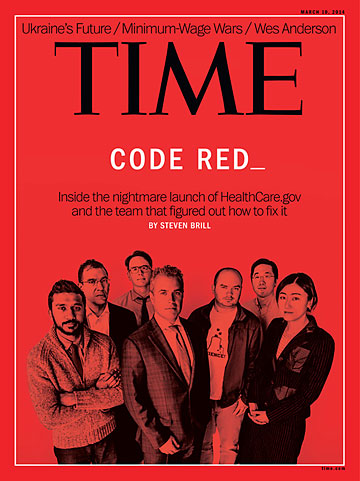
(13 of 14)
Just after midnight, Park went home and Dickerson went back to the DoubleTree. He didn't go back to Google until Jan. 5, spending the days after Christmas helping organize a crew of pit bosses who would cycle in and out of the operations center, which looked calm and whose video dashboards all displayed a remarkably stable system when I was there recently. (One screen showed that the current average response time--once a ridiculous eight seconds per page--was down to 0.343 seconds.)
As of its mid-February report covering the period through Jan. 31, CMS says the site had processed 1.9 million enrollments.
5. Where Technology Stops And Policy Begins
Challenges remain. A back-end link providing payments and automated account records to insurance companies has yet to be built and might not be completed before summer. But that is mostly a headache for the insurance companies, which have to bill and process payments through spreadsheets; it is not likely to affect consumers' experience or their access to insurance.
Had the Obama team brought in its old campaign hands in the first place to run the launch, there would have been howls about cronyism. But one lesson of the fall and rise of HealthCare.gov has to be that the practice of awarding high-tech, high-stakes contracts to companies whose primary skill seems to be getting those contracts rather than delivering on them has to change. "It was only when they were desperate that they turned to us," says Dickerson. "I have no history in government contracting and no future in it ... I don't wear a suit and tie ... They have no use for someone who looks and dresses like me. Maybe this will be a lesson for them. Maybe that will change."
In the way the team dropped everything to help and then stayed as long as it took, there's also a lesson about what John Doerr calls "the myth that everyone in Silicon Valley is a selfish narcissist." In one way or another, every member of the team told me the same thing--that this was the toughest but most rewarding project of their lives.
"The two months I spent on this were harder and more intense than the 17 months I spent on the campaign," says Burt, who like Dickerson initially thought he was going to be working for free. "But I loved every minute of it ... I believe in getting people health care. I am so proud of this."
"Jeff was good at pumping us up, and so was Todd," says one of the team members. "We even got to meet McDonough, the chief of staff, and that was good. But we really didn't need to be pumped up much. This is what we do. And this job had special meaning." That may be why none of the group--even those like Dickerson who had worked for President Obama during one or both of the campaigns and had met him multiple times at campaign headquarters--expressed any surprise or regret that they never got to meet the President. "I'm sure he's got a lot of other things to do," says Kim, chuckling. Nonetheless, a quick visit from Obama (who spent Thanksgiving 2013 at the White House) to the troops who worked around the clock to save his signature domestic-policy initiative would have seemed fitting.
